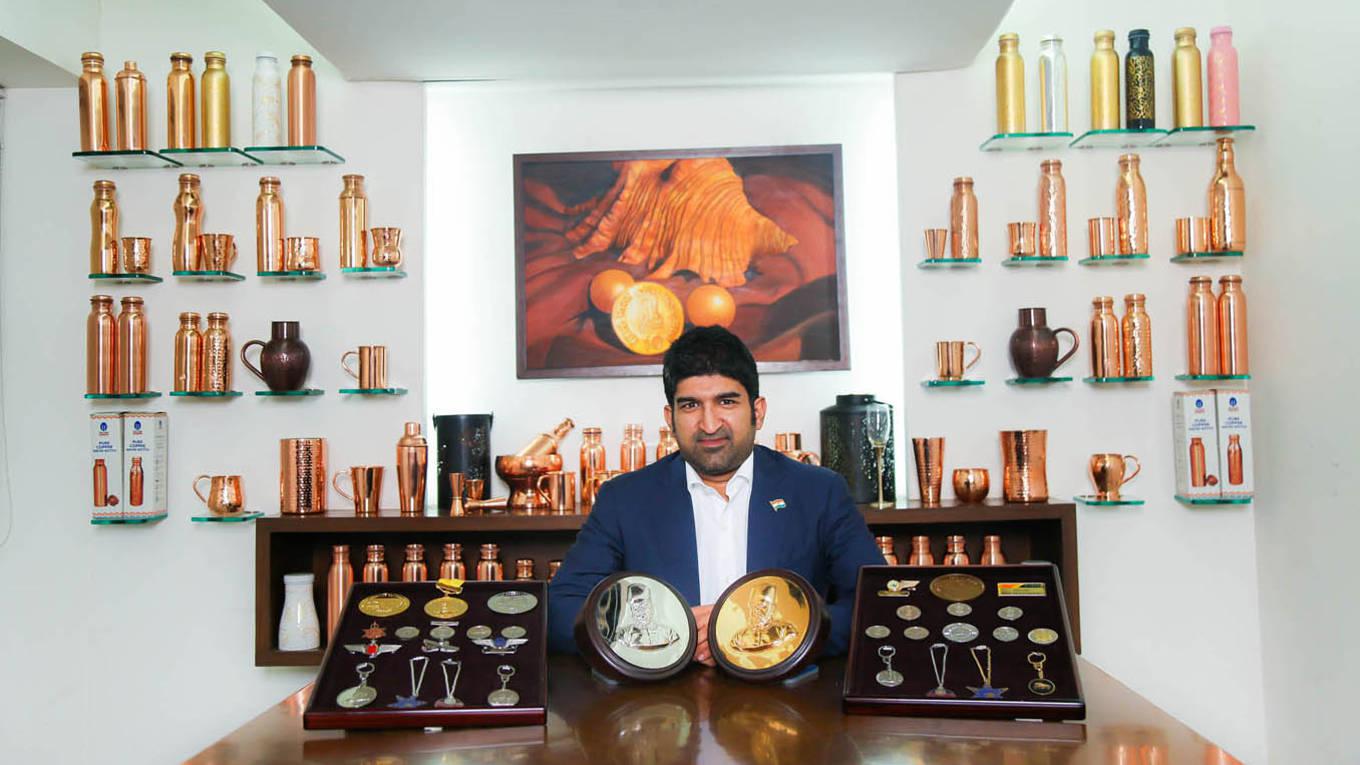The copper bottle his company makes is ‘not at all expensive’ insists Ankit D. Mittal, who runs Mittal Craftworks. “The initial investment is high,” he admits. But it is a one-time cost – then it gives life-long benefits. It doesn’t break, he points out; all it needs in terms of maintenance is a very simple cleaning method – either with salt on a half-cut lemon and rubbing the outer surface, then washing it with water, or with a powder that is used for polishing brass. “And then when you want to discard, you get the full value of the metal back, as we use only copper of 99.5 per cent plus purity!” Mittal says. “We take pride in not using any hazardous chemicals for giving lustre or shine to the bottle, unlike most other manufacturers of copper bottles.”
An offshoot of the Indore-based family firm Mittal Appliances Ltd which is India›s largest – and the world’s second-largest – manufacturer of non-ferrous currency coinblanks, Mittal Craftworks has a dedicated facility for manufacturing a variety of items like long-service medals, badges, cuff-links and poker sets in gold, silver, gold-plated silver and copper alloys. “Our clientele includes the likes of the Indian Navy, Indian Army (Corps of EME), UBS group AG, many Tata group companies, Aditya Birla group, MMTC, Bank of Baroda, Volvo-Eicher Commercial Vehicles, Emami, Air India, and various turf clubs,” Mittal says.
International standards
The facility is also used for making handcrafted metal products like the copper bottles, as well as pitchers, jugs, tumblers, mule mugs, tanks and bar sets. Mittal follows stringent social and labour norms at his well-equipped facility – all conforming to international standards, according to him. “We also stress on using 100 per cent safe, food-grade lacquer to give a sheen on the exterior surfaces even though they don’t come in contact with the drinking water,” he explains. “We have a dedicated team of research and development professionals who work to make our product beneficial for the health and more environment-friendly.” As a policy, it does not promote or use non-degradable materials such as plastics in the product and packaging.
-

Mittal makes copper bottles as well as a range of home ornaments and institutional give-aways

































